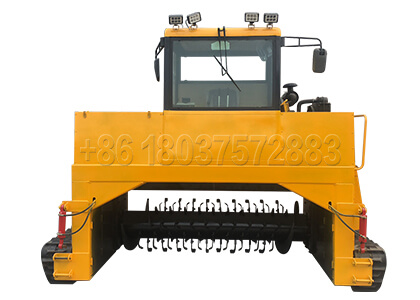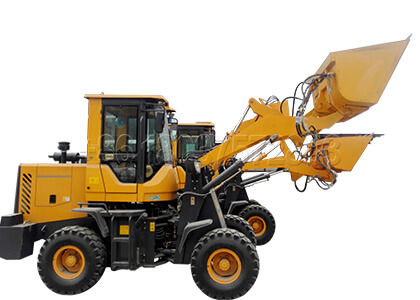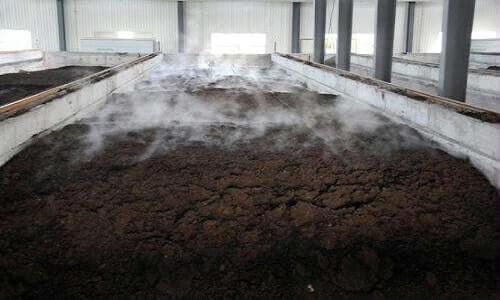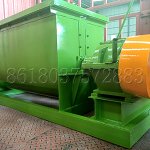Sludge composting materials are divided into raw sludge and digested sludge, rich in nitrogen and high in moisture content, it needs to be adjusted with dry materials with high carbon content. The sludge and the raw sludge are rapidly decomposed, and the digested sludge has a moderate decomposition ability. The possibility of odor generation from raw sludge is large, and the smell of digested sludge is slightly lighter. The sludge often contains a large number of pathogenic microorganisms. The industrial sludge has a high content of heavy metals. It is necessary to adopt some technological and technical measures to use the sludge for composting. For example, it is more suitable to use the sludge produced by the domestic sewage treatment plant for composting.

Excrement treatment sludge
The nature of the excreta-treated sludge (dewatered sludge) varies depending on the type of the dehydrator and the type of dewatering coagulant. The basic properties are water 75%-85%, organic matter 10%, C/N7.2%, nitrogen 4.3%, phosphorus 1.8%, potassium 0.5%, pH 7.3. According to the measured data, the characteristics of collecting excrement and collecting sludge from the purification tank.
Sewage sludge
Under normal circumstances, the sewage sludge contains 70% of water, 60% of organic matter 70%, C/N of 10, nitrogen of 1% to 8%, phosphorus of 3% to 5, and 1% of trace potassium, pH 5, and 7. However, if a lime coagulant is used, the pH is 8-12. Harmful substances such as heavy metals are not conducive to composting, so if this problem is solved, the sewage sludge can become a good composting raw material.

Village and town drainage sludge
The sludge generated by the village drainage treatment facilities is concentrated sludge, dehydrated by the sludge dewatering machine, and dewatered by the mobile dewatering truck. The water content will change, but the other properties remain unchanged. In the concentrated sludge, the water content is about 98%, the C/N is 5.3, 6, 6, the nitrogen is 5, 6%, 7.0%, and the phosphorus (P205) is 4.7%, 5, 5%. Potassium (K20) is 0″5%, 0.9%, and the pH value is 6,7-6.9. The sewage sludge in the village will not be mixed with sewage and heavy metals discharged from the factory, so it is beneficial to composting.



